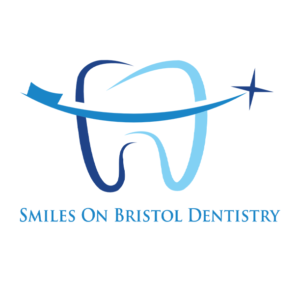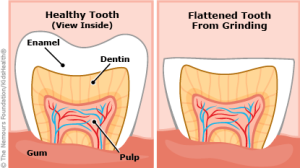Bruxism (Teeth Grinding)
Bruxism is defined as the involuntary or habitual grinding of the teeth, typically during sleep. Why do I grind my teeth at night? How does Bruxism affect my teeth and jaw? What can I do to stop grinding? These are some common questions that patient who suffer from bruxism ask the dentist. Bruxism is a very common habit that affects both adults and children. Many cases of bruxism go undetected without any damage to the teeth or jaw. Other cases do affect the patients.
Why Do I grind my teeth?
Grinding or clinching of the teeth has to due to many factors. Anxiety, stress, and frustration can be one reason of why people grind their teeth. Another reason can be that the teeth are not aligning properly (malocclusion). Some medicine side effects or sleep disorders can also be causing bruxism.
How does Bruxism affect me?
Bruxism affects your teeth when too much pressure is put on the teeth. The pressure tends to chip or wear teeth. That can be a visual way to know if you’re grinding your teeth. Frequent headaches or soreness of the jaw is another symptom of bruxism.
What can I do to stop grinding my teeth?
The first step would be to schedule a dental exam to see how much the bruxism has affected your teeth. In most cases the doctor recommends a custom night guard for the patient to wear at night. This would work like a cushion in between your teeth, taking most of the pressure from your teeth. If the grinding is cause by stress
Your dentist would recommend seeking therapy or finding different alternatives to relieve stress. Examples like massaging or exercise of your jaw or muscles.
Children who are experiencing bruxism, the best way to help is by scheduling an appointment with their dentist to make sure no permanent teeth are being affected.
Child bruxism tends to go away when the patient grows. Six months check ups are very important, your dentist can detect bruxism before it worsens or damages your teeth.


